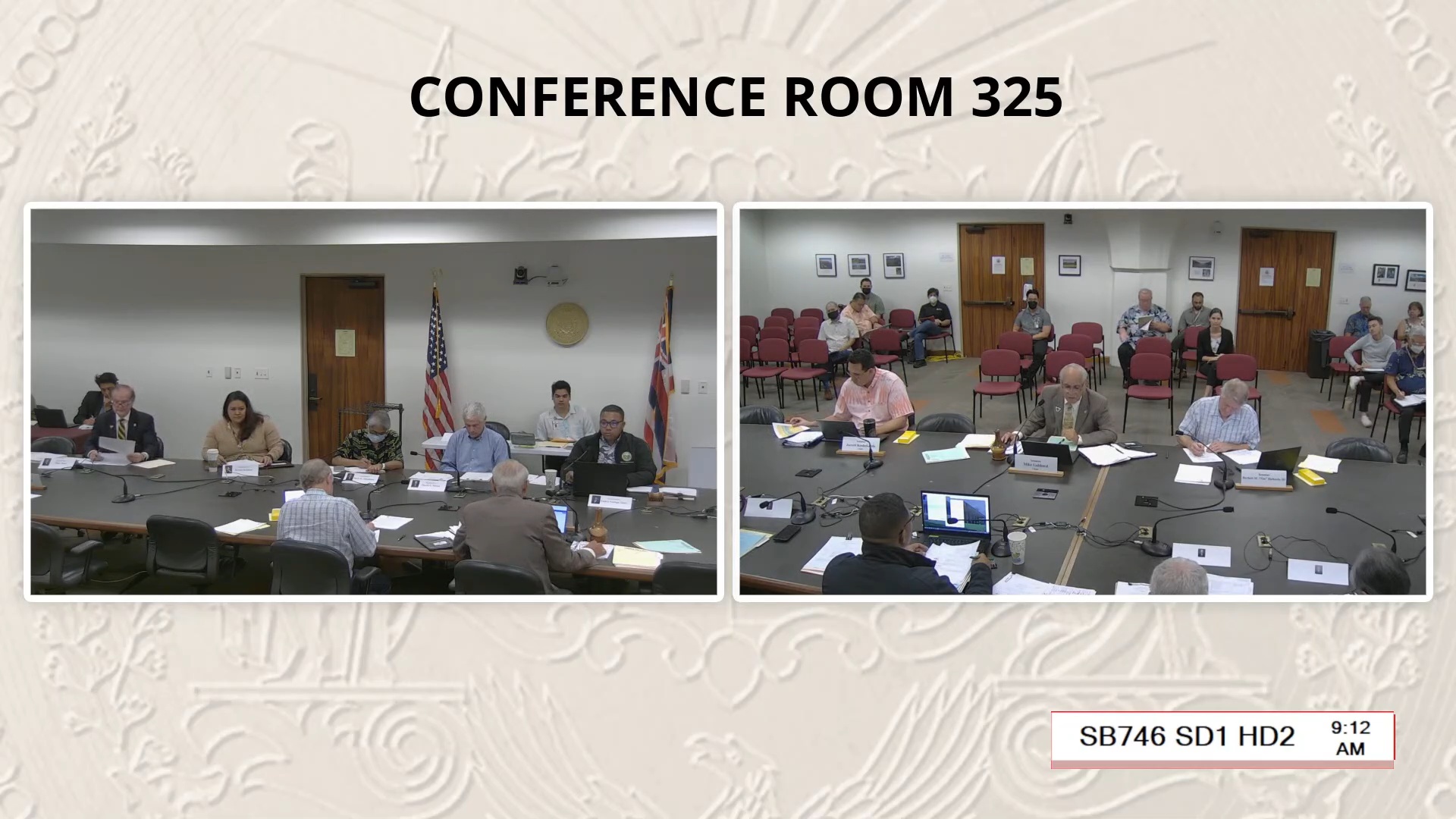This story appears in the above BIVN Hawaiʻi Update. The video will jump to the associated story when played. (A synthesized voice was utilized in the narration for this story)
(BIVN) – The Hawaiʻi House and Senate in conference committee on Tuesday agreed to an expanded coffee labeling bill, that includes ready-to-drink coffee beverages and prohibits the use of the term “All Hawaiian” for coffee that isn’t produced entirely from beans grown and processed in Hawaiʻi.
SB746 SD1 HD2 is described:
Expands the coffee labeling and advertising requirements to include ready-to-drink coffee beverages and the inner packages and inner wrapping labels of roasted coffee, instant coffee, and ready-to-drink coffee beverages. Specifies that the coffee labeling and advertising requirements apply if the applicable products are produced in whole or in part from Hawaiʻi-grown and Hawaiʻi-processed green coffee beans. Requires disclosure on the label of coffee blends of the respective geographic and regional origins and per cent by weight of the blended coffees. Prohibits use of the term “All Hawaiian” in labeling or advertising for roasted coffee or instant coffee not produced entirely from green coffee beans grown and processed in Hawaiʻi. Effective 6/30/3000. (HD2)
From Section 1 of the bill:
The legislature finds that for over thirty years, Hawaii has been the only region in the world that statutorily regulates the uses of its geographic names, such as “Kona”, “Maui”, and “Ka‘ū”, on labels of its specialty agricultural products but requires that only ten per cent of the product originate in the geographic area indicated. The legislature further finds that this low ten per cent requirement directly damages and degrades the reputation of world-famous Hawaii-grown coffees and damages the economic interests of Hawaii coffee farmers. The legislature notes that a 2018 publication entitled “Strengthening Sustainable Food Systems Through Geographical Indications: An Analysis of Economic Impacts” by the Food and Agriculture Organization of the United Nations and the European Bank for Reconstruction and Development concluded, among other things, that Kona coffee “does not enjoy any strong protection of its name” from the State of Hawaii, and as a result, downstream stakeholders, rather than farmers, “reap the economic benefits of the fame of Kona”.
The legislature also finds that more than ninety per cent of Hawaii’s coffee farms are located on the island of Hawaii. In 2014, the Hawaii county council adopted Resolution No. 501 14, entitled “Requesting the Hawaii Legislature to Adopt Provisions for Truth-In-Labeling for Hawaii-Grown Coffees”. The council’s request to the legislature was based on several findings, including:
(1) Senate Concurrent Resolution No. 102, S.D. 1, H.D. 1, regular session of 2007, which stated in part that:
(A) Existing labeling requirements for Kona coffee causes consumer fraud and degrades the “Kona coffee” name; and
(B) Confusion as to the difference between Kona coffee and Kona coffee blends caused Consumer Reports magazine to rate Kona coffee as “second rate”;
(2) The fact that it is inherently deceptive and misleading to label coffee as a geographically identified blend, such as “Hamakua Blend”, “Ka‘ū Blend”, or “Kona Blend”, unless at least a majority of the coffee is from that region;
(3) The label on the package of a ten per cent Hawaii coffee blend does not advise consumers that ninety per cent of the coffee in the package is imported, is foreign-grown, or may be a mixture of multiple Hawaiian regions and foreign-grown coffee;
(4) Not identifying the origin of ninety per cent of a coffee blend is inherently deceptive to consumers, who are often erroneously led to believe that a package of coffee blend contains a blend of coffees only from farms in Kona or other regions in Hawaii, when in fact a portion of the blended coffee could be foreign-grown coffee;
(5) Blending cheaper commodity coffees from Vietnam, Mexico, Panama, Africa, and other foreign countries to fill ninety per cent of the coffee blend enriches the mainland-based corporations that own the Hawaii blending companies with immense excess profits, without any benefit to Hawaii coffee farmers;
(6) The acknowledged blending of beans of various roasts and origins by coffee roasters to create unique flavor profiles is an acceptable practice and is different from the deceptive labeling using misleading geographic origin names of blends, which violates the basic principles of consumer protection and fair marketing; and
(7) Immediate legislative action is necessary to protect the reputation of Hawaii-grown coffees as premier, specialty coffees from further degradation.
The legislature also notes that ready-to-drink coffee beverages and inner wrapping labels given, but not sold, to customers are not subject to the current statutory requirements for fair trade coffee labeling and advertising. These requirements only apply to roasted coffee and instant coffee.
The legislature finds that these labeling and advertising requirements were primarily intended to resolve any consumer confusion and allow consumers to “make an enlightened choice”, as stated in Act 289, Session Laws of Hawaii 1991. These statutory requirements ensure truthful representation of a coffee product’s geographical origin, which protects consumers from fraud and deception in coffee labeling and advertising.


by Big Island Video News3:47 pm
on at
STORY SUMMARY
HONOLULU - SB746 also prohibits use of the term "All Hawaiian" in labeling or advertising for coffee not produced entirely from beans grown and processed in Hawaiʻi.